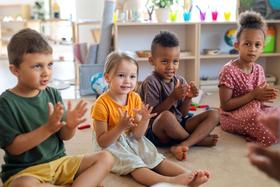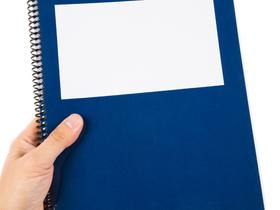Wikipedia has a list of shootings which have occurred in our schools dating back to the 1840s. Sadly, most of the shootings in the past several decades since the mass shooting at Columbine High School have taken place in public schools. That led me to ask why private schools seem to have been spared these senseless killings.
Before we look at some of the reasons why shootings occur, let's find out what percentage of shootings occur in private vs. public schools. In Are Shootings More Likely to Occur in Public Schools? Corey A. Deangelis notes the following research:
"Hyewon Kim—a Cato Center for Educational Freedom Intern—compiled information on school shootings in the United States from 2000 to 2018 using the Tribune-Review database. The database is limited to legitimate school shootings; that is, shootings that occurred on or near a K-12 school campus while classes were in session or when students were present. The list also excluded suicide-only incidents."
"Hyewon found 134 school shootings from 2000 to 2018. Only eight of these occurred in private schools while 122 occurred in public schools. The type of school could not be definitively classified for 4 of the shootings. As shown in the figure below, about 94 percent of the shootings that could be classified occurred in public schools while only about 6 percent occurred in private schools."
This TEDTalk discusses how school shootings can be prevented.
Are private school buildings and campuses physically safer?
I don't think so. In most cases, schools have perimeter security systems and protocols in place. Entering a private school campus and its buildings requires you to identify yourself to a guard at an entry gate. Access control is the front line of defense in most schools. You can no longer just walk into a school building. That's the same as the security which you will find in most public schools. Perimeter security and access control are staples of 21st-century school security. In addition, security cameras record activity just about everywhere.
What role does school size play in shootings?
The abstract from a 2008 paper entitled, School Shootings, High School Size, and Neurobiological Considerations, by Dr. David A. Kaiser , notes
"In the last decade 17 multiple-injury student school shootings have occurred in the United States, 13 at high schools and 4 at middle schools. Research suggests that high schools function best academically as well as socially at enrollments around 600 (150 students per grade), the natural group size of humans. Eleven of 13 high school shootings occurred in schools with enrollments over 600 students, and many with over 1,000 students. Violent and antisocial behavior is associated with deficits in social information processing, which is necessarily exacerbated by complex social environments. School shootings may be in part a response to the unprecedented social complexity of large schools. Median public high school enrollment now stands at 1,200 in suburbs and 1,600 in cities despite the fact that smaller schools are superior to large schools on nearly all academic and social measures of success including graduation rate, student satisfaction, conduct infractions, athletic participation, absenteeism, and dropout rate. Educational institutions should adapt to the neurobiological limitations of children instead of forcing children to adapt to the unnatural requirements of such institutions."
Students in a private school with less than 600 hundred students don't get lost in the crowd. Everybody knows everybody. Administrators and faculty make a point of monitoring students closely. They tend to catch loneliness, depression, and all the other negatives of young people's lives before they fester into something major. Small class sizes add an even greater margin of safety. It is very difficult to hide your feelings, lack of knowledge or anything else in a class of 12-15 students.
What role does school culture play in school safety?
In my opinion, a school's culture is at the heart of its safety. Students attend private school because their parents want them to learn. Private schools don't have the same issues we hear so much about in public schools, namely, popularity groups. Groups of jocks, geeks, and so on don't flourish in private schools because all of the students share a common purpose, namely, learning.
This video looks at school culture.
The discipline code in private schools is a major factor in discouraging violence of every kind. Students and parents are governed by contract law, as opposed to students rights. A major infraction of the contract which parents, student, and the school have signed can lead to expulsion from the school. There is no lengthy process involved. The results are immediate and with very little in the way of recourse. Put another way, if your child shows up at a private school with a weapon, the consequences for her actions, and yours will be severe. Contrast that with what happens in public schools. In public schools, students have rights. That means a lengthy due process ensues after an infraction of school rules and policies. It is a different approach to discipline which can have a major impact on school safety.
Emergency preparedness
Schools have always held fire drills. These have now morphed into emergency drills in which the entire school community participates. A variety of emergency situations have been added to most schools' emergency preparedness playbooks. Instructing every member of the school community how to handle an emergency is part of these emergency preparedness drills. This contributes to safer schools because everybody has been trained to perform certain roles in an emergency situation.
In this video Blue Titan Fitness & Self-Defense brings a well-rounded School Safety and Emergency Preparedness Program to learning institutes.
Ask. Review. Be aware.
Don't assume anything about your school's emergency preparedness plan. Ask to see it. Review it carefully. Discuss it thoroughly with your children. Always be aware of what's going on. That means you must keep your smartphone on while your children are out of your home. The first alert which you will receive could well be a text message or a call from the school or your children or both. Your children's safety is your responsibility.
Questions? Contact us on Facebook. @privateschoolreview
























